Latest Ethereum News

7 months ago
Solana's Innovations Overlooked in EVM-Biased Report
In a recent analysis of a16z's report on the "State of the Crypto Industry," Lily Liu, Chair of the Solana Foundation, highlights a notable EVM bias that overlooks Solana's impressive achievements in transaction fees, NFTs, and the DeFi market. Despite Solana leading in NFT addresses and transaction volume over the past year, the report fails to acknowledge significant innovations in decentralized physical infrastructure networks (DePIN), such as Helium and Hivemapper, which thrive within the Solana ecosystem. Liu argues that the report's binary framework, which positions EVM and non-EVM ecosystems as oppositional, misrepresents the true landscape of blockchain development and user engagement.
Liu emphasizes the importance of transaction fees as a more meaningful metric for assessing ecosystem activity and health, rather than relying solely on active addresses or Total Value Locked (TVL). Since introducing a fee market, Solana's transaction fee market share has surged from below 1.5% to consistently above 10%, peaking at 25% in July 2024. This shift indicates a growing economic value within the Solana ecosystem, narrowing the gap with Ethereum when considering Real Economic Value (REV). Furthermore, Liu critiques the report's gaming sector analysis, which fails to adequately include non-EVM networks like Solana, leading to incomplete comparisons that do not reflect the full blockchain gaming ecosystem.
Additionally, Liu points out that the report's focus on TVL for DeFi comparisons is insufficient, as it overlooks critical metrics such as transaction volume. While Solana's TVL is only 10% of Ethereum's, its monthly DEX transaction volume often exceeds that of Ethereum, highlighting its capital efficiency. Liu also notes that Solana's low transaction costs have driven significant consumer behavior changes, exemplified by the success of platforms like Drip Haus. The absence of DePIN innovations within the report raises questions about its comprehensiveness, as groundbreaking projects like Helium and Hivemapper are primarily developing within the Solana ecosystem, showcasing the real-world applications of decentralized networks.
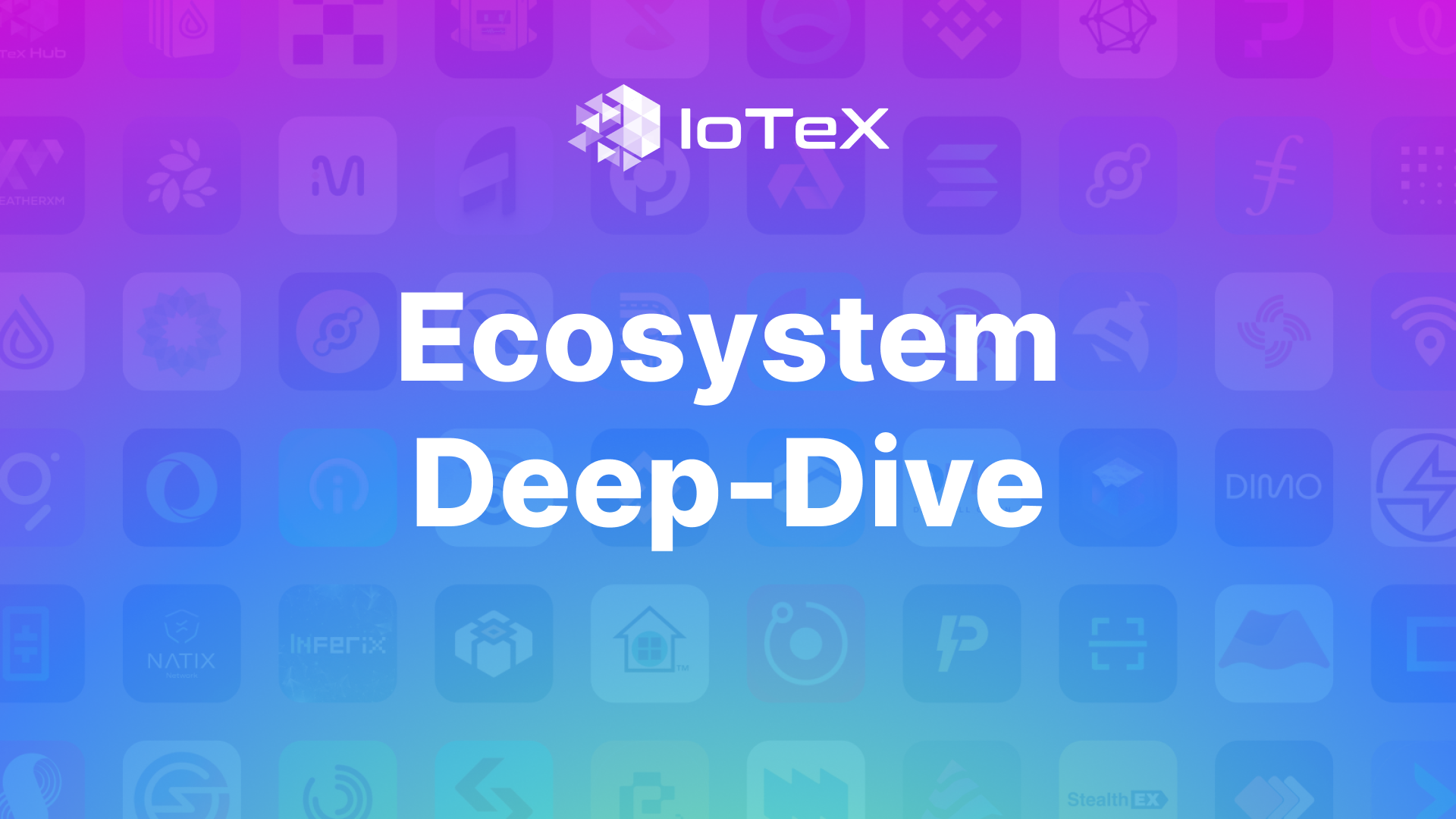
8 months ago
IoTeX Ecosystem Thrives with DePIN Growth and Upcoming Initiatives
The IoTeX ecosystem is experiencing unprecedented growth, particularly in the DePIN (Decentralized Physical Infrastructure Network) sector. With the launch of IoTeX 2.0, the platform has introduced a sophisticated tech stack that has attracted 218 projects, including 51 dedicated to DePIN. This surge in activity is underscored by the impressive DePINscan, which now tracks over 280 projects and 18 million devices. The upcoming Get GOATed Season 2 campaign promises to further energize the ecosystem with 100 million $IOTX incentives, marking a pivotal moment for IoTeX and its vision to become the leading DePIN ecosystem in the crypto space.
IoTeX is now recognized as the third-largest DePIN ecosystem, trailing only Ethereum and Solana. The platform's commitment to supporting its projects through initiatives like the DePIN Surf Accelerator and the IoTeX Ecosystem Fund has fostered significant advancements in the sector. Notable projects such as Network3, Nubila, and Wayru are making headlines with their innovative approaches and successful fundraising efforts. For instance, Network3 has raised $5.5 million and is set to launch its $N3 token soon, while Nubila has secured $2.5 million to enhance its environmental data collection capabilities.
Looking ahead, IoTeX is not only focused on nurturing its internal projects but is also expanding its influence across other Layer 1 networks. Recent integrations with platforms like Solana and Polygon are designed to enhance cross-chain liquidity and broaden the reach of DePIN capabilities. As the ecosystem gears up for major product launches, including ioID and W3bstream, the excitement surrounding IoTeX continues to build. With a robust roadmap ahead, IoTeX is poised to solidify its position as a key player in the DePIN landscape, driving innovation and collaboration across the crypto universe.
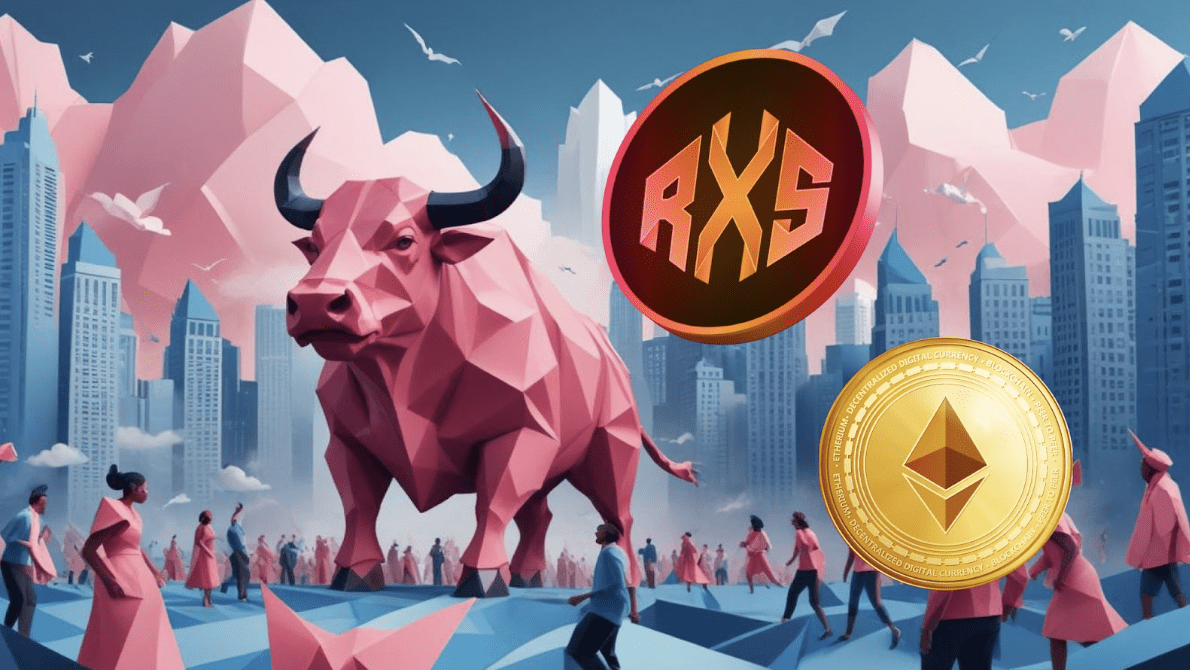
8 months ago
Three Altcoins Poised to Outperform Ethereum: BNB, RXS, and TAO
A prominent crypto trader has made a bold prediction regarding three altcoins that could potentially outshine Ethereum (ETH) in the long run. These altcoins—Binance Coin (BNB), Rexas Finance (RXS), and Bittensor (TAO)—are noted for their unique innovations and growth potential in the evolving blockchain landscape. Binance Coin, which powers the Binance ecosystem, has seen a 16% increase over the past month and is currently trading within a consolidation zone. Analysts suggest that if market trends continue, BNB could experience a breakout, potentially reaching $1,076, with historical patterns indicating it might even surpass the $2,000 mark during the next bull run. Additionally, a significant net inflow into the Binance Smart Chain (BSC) highlights a growing preference for its lower transaction costs compared to Ethereum, positioning BNB as a formidable competitor for long-term dominance.
Rexas Finance (RXS) is emerging as an exciting player in the decentralized finance (DeFi) space, focusing on the tokenization of real-world assets. This innovative platform allows users to invest in previously illiquid assets such as real estate and art, attracting a diverse range of investors. The ongoing presale of RXS has already raised over $2.81 million, with analysts predicting a potential price increase to $12 by 2025. Rexas Finance also offers tools for users to create and deploy tokens easily, alongside a launchpad for decentralized token sales. By bridging traditional and digital finance, Rexas Finance is poised for long-term success, tapping into a market valued at over $500 trillion.
Bittensor (TAO) has gained significant attention in the AI token market, experiencing a remarkable 164% surge in the last month. Its integration into Grayscale's Decentralized AI Fund and rising trading volumes indicate strong investor interest. Bittensor's focus on decentralized machine learning models positions it as a key player in the growing demand for AI solutions. With a market capitalization of $4.7 billion and a trading price nearing its all-time high, analysts believe TAO may continue to outperform Ethereum and other altcoins. Each of these altcoins—BNB, RXS, and TAO—represents a unique opportunity for investors seeking high-growth prospects in the blockchain space, potentially challenging Ethereum's dominance in the near future.

8 months ago
AI-Driven Coins Surge as IntelMarkets Leads the Charge
The cryptocurrency market is currently witnessing a significant surge in AI-driven coins, with IntelMarkets (INTL) leading the charge in presale success. This emerging coin has attracted considerable attention, raising over $1.1 million at a presale price of just $0.027. Market analysts predict a potential price increase of up to 1,000% in the coming months, highlighting the growing interest in AI technologies within the crypto space. Alongside INTL, Near Protocol (NEAR) and Bittensor (TAO) are also experiencing impressive gains, with NEAR trading at $4.99 after a notable recovery from a low of $3.25. This trend suggests a shift in market dynamics, with AI coins poised to challenge established players like Cardano (ADA).
Cardano (ADA) is currently facing a downturn, struggling to maintain its value amidst a bullish market. The coin has seen a minor increase of only 3%, trading at $0.36, but has experienced significant fluctuations, dropping as low as $0.3434. The persistent red candles on the weekly charts indicate a bearish trend, with a monthly decline of 2%. As the market shifts towards AI-driven projects, Cardano's position may be threatened, prompting investors to reassess their strategies in light of these emerging competitors.
The IntelMarkets platform aims to revolutionize cryptocurrency trading by providing retail traders with advanced tools and features designed to simplify decision-making. Utilizing a dual architecture on Ethereum and Solana blockchains, IntelMarkets leverages over 100,000 inputs to generate a single trade signal, enhancing the trading experience. As the demand for efficient and cost-effective trading solutions grows, IntelMarkets is well-positioned to capitalize on this trend, potentially reshaping the landscape of cryptocurrency trading platforms.
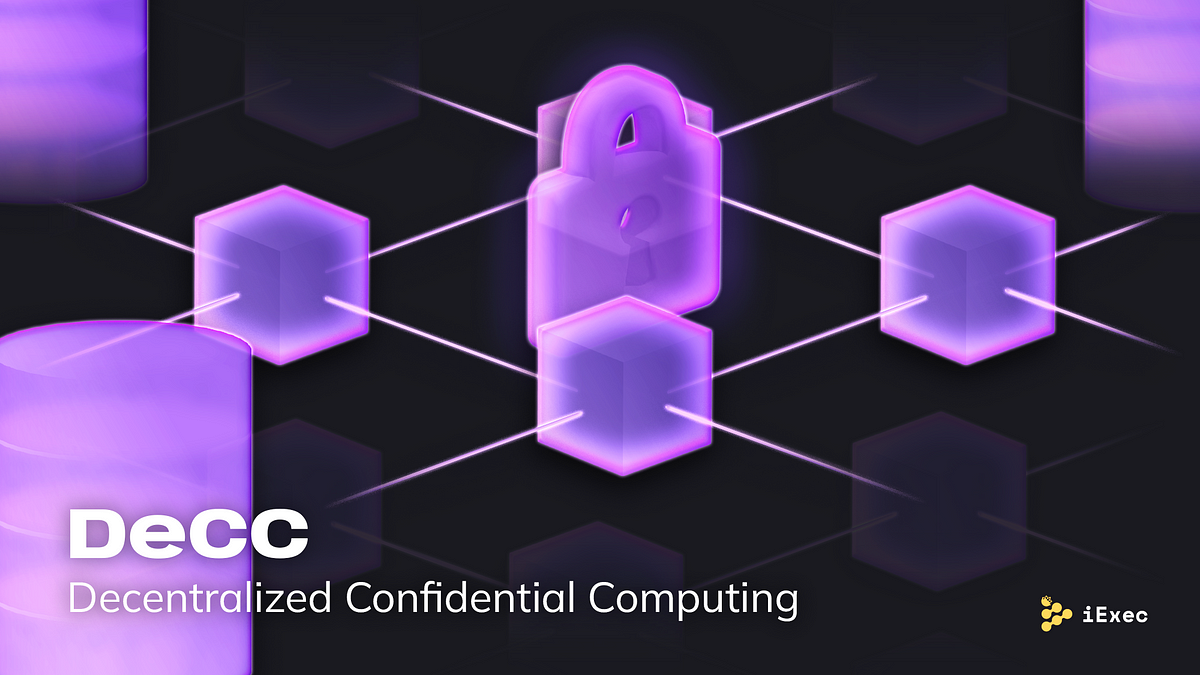
8 months ago
iExec: Pioneering Decentralized Confidential Computing in Web3
As Decentralized Confidential Computing (DeCC) gains traction in 2024, iExec has been a pioneer in this domain, merging Confidential Computing with blockchain since 2018. Collaborating with Intel, iExec launched the first Trusted Compute Specification for the Ethereum Enterprise Alliance, laying the groundwork for secure data processing in Web3. By 2019, iExec became the first Web3 company to join the Confidential Computing Consortium, solidifying its role in decentralized data protection. These early innovations have paved the way for DeCC, which redefines data privacy and security in the Web3 landscape.
Confidential Computing is a critical component of DeCC, addressing the need to protect data not only at rest and in transit but also during processing. This technology isolates sensitive data or code using hardware enclaves, creating a trusted execution environment that processes encrypted data in memory. By employing hardware-based attestation reports, Confidential Computing ensures that only authorized programs can access the data within these enclaves. This approach safeguards various types of data, from personal information to complex algorithms, enhancing security in an increasingly fragmented data landscape.
The DeCC movement promotes a broader understanding of privacy in Web3, emphasizing user control and decentralized security. With the formation of the DeCC Alliance, which includes leading projects in Confidential Computing, the initiative aims to educate the public on the capabilities of DeCC and its necessity for secure data usage. iExec's mission is to empower users by tokenizing their data and establishing governance rules, ensuring that data remains secure and private. As DeCC continues to evolve, it is set to transform the Web3 ecosystem, making privacy and data ownership a fundamental right for users in the digital age.
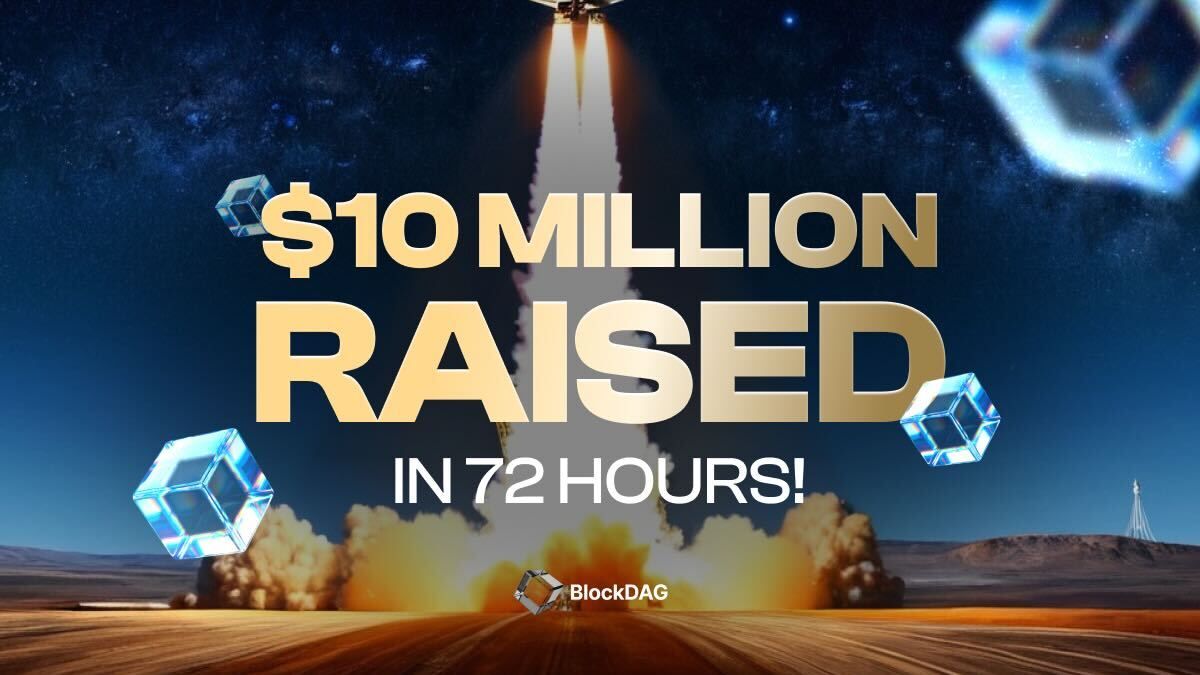
8 months ago
BlockDAG Surges to $92M Amid Ethereum and Bittensor Struggles
The cryptocurrency market is witnessing significant fluctuations, particularly with Ethereum and Bittensor experiencing declines, while BlockDAG is making notable gains. Ethereum has seen a drop in active users by 18.23%, decreasing from 382,000 to 312,000. This decline raises concerns about the network's overall activity, contributing to a price drop to approximately $2,480, which is a 6.18% decrease. Despite some trading activity from Ethereum ETFs, the lack of user engagement may further depress prices, prompting analysts to monitor its potential recovery.
In contrast, Bittensor had a remarkable September, with its price surging by 111% from $264 to $587. However, early October has brought uncertainty, as indicators suggest that Bittensor might be overbought. Currently priced around $585, it faces resistance at $660, and without renewed interest, it could see a decline to $520 or even $445. The decrease in visibility and market focus for Bittensor could hinder its growth unless it can attract more attention from investors.
Amidst these challenges, BlockDAG has emerged as a strong contender in the crypto space, raising $10 million in just 72 hours following the successful launch of its testnet. This achievement has propelled its presale value to over $92 million, with expectations of reaching a $600 million target. The BDAG coin has experienced a staggering increase from $0.001 to $0.0206, offering early participants a remarkable 1960% gain. As demand for BDAG coins continues to rise, experts predict a potential 30,000x return for early investors, making BlockDAG a project to watch closely in the upcoming crypto rally.
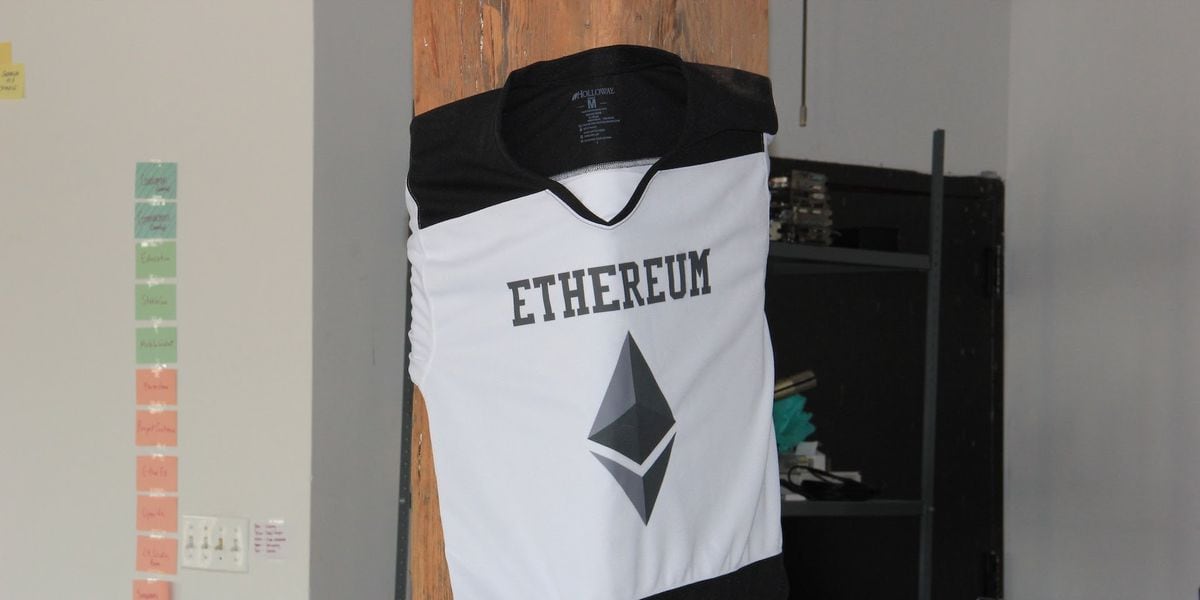
8 months ago
Ethereum's Path Forward: Refocusing on Infrastructure to Regain Direction
Ethereum, since its inception in 2015, has evolved from a visionary concept into a foundational platform for decentralized applications. However, as competition intensifies from other blockchains like Bitcoin and Solana, Ethereum appears to be losing its direction. The token's price remains stagnant, failing to surpass its all-time high of $4700 reached in 2021. This stagnation raises concerns about Ethereum's commitment to its original vision of becoming the World Computer. Ethereum Team Lead, Péter Szilágyi, has noted that the platform is "losing the plot," as it becomes distracted by trends like faster transaction speeds and the concept of "ultrasound money," which detracts from its core purpose of decentralization.
The underperformance of Ethereum can be attributed to the current state of decentralized applications (dApps) built on the network. Many of these applications generate short-lived excitement but suffer from poor user interfaces and limited functionality, which hampers user growth. Furthermore, the focus on Layer 2 solutions has led to a siloed user base, making it difficult for Ethereum to achieve its goal of being the World Computer. Despite these challenges, there are signs of progress in Ethereum's infrastructure, with ongoing developments in decentralized computing and a shift towards permissionless networks favored by enterprises.
Looking ahead, Ethereum is at a critical juncture in its scaling roadmap. Upcoming upgrades, such as the Pectra upgrade scheduled for late 2024, are essential for maintaining competitiveness with other blockchain platforms. The Purge upgrade will also play a crucial role in simplifying the protocol and reducing costs, but it raises concerns about data centralization. To truly fulfill its role as the World Computer, Ethereum must refocus on enhancing its infrastructure rather than chasing fleeting trends. By doing so, Ethereum can ensure a robust foundation for decentralized computing and regain its status as a leader in the blockchain space.
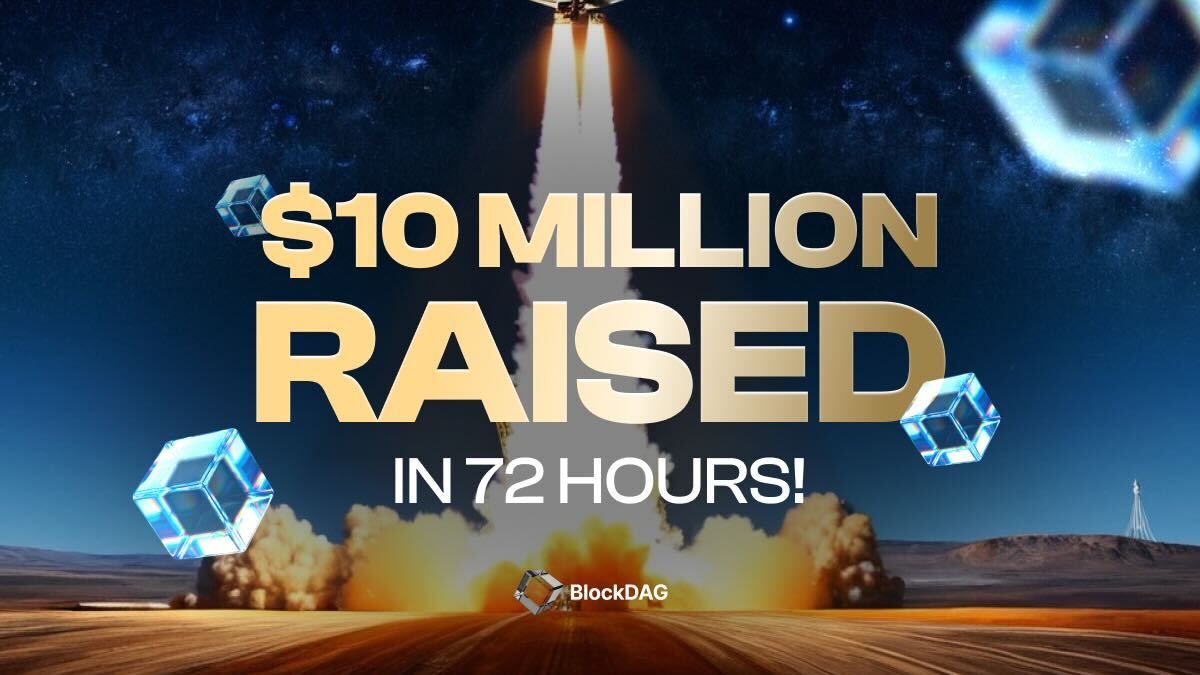
8 months ago
BlockDAG Raises $10M in 72 Hours as Ethereum and Bittensor Struggle
In the rapidly evolving cryptocurrency landscape, BlockDAG has emerged as a significant player, raising an impressive $10 million in just 72 hours. This surge in funding follows the launch of its highly scalable and user-friendly testnet, which has generated considerable excitement among investors. With the presale now exceeding $92 million, BlockDAG is positioning itself as a frontrunner for the next major crypto rally, drawing attention away from struggling platforms like Ethereum and Bittensor.
Ethereum is facing challenges as its active user base has declined by 18.23% this year, dropping from 382,000 to 312,000. This decrease has raised concerns about the network's overall activity, contributing to a price drop to approximately $2,480. Despite the introduction of Ethereum ETFs, the lack of user engagement is prompting analysts to monitor whether Ethereum can regain momentum or continue its downward trend. Similarly, Bittensor has experienced a volatile month, with its price peaking at $587 but now facing potential resistance around $660, indicating a possible correction if demand does not increase.
In stark contrast, BlockDAG's rapid growth is attracting significant interest, with projections suggesting a potential 30,000x return for early investors. The presale has seen over 14 billion BDAG coins sold, and as the demand continues to rise, the price of BDAG coins has skyrocketed from $0.001 to $0.0206. As the latest presale batch nears completion, investors are urged to act quickly to capitalize on this burgeoning opportunity before prices escalate further. BlockDAG's momentum positions it as a promising candidate for those looking to invest in the next wave of cryptocurrency growth.
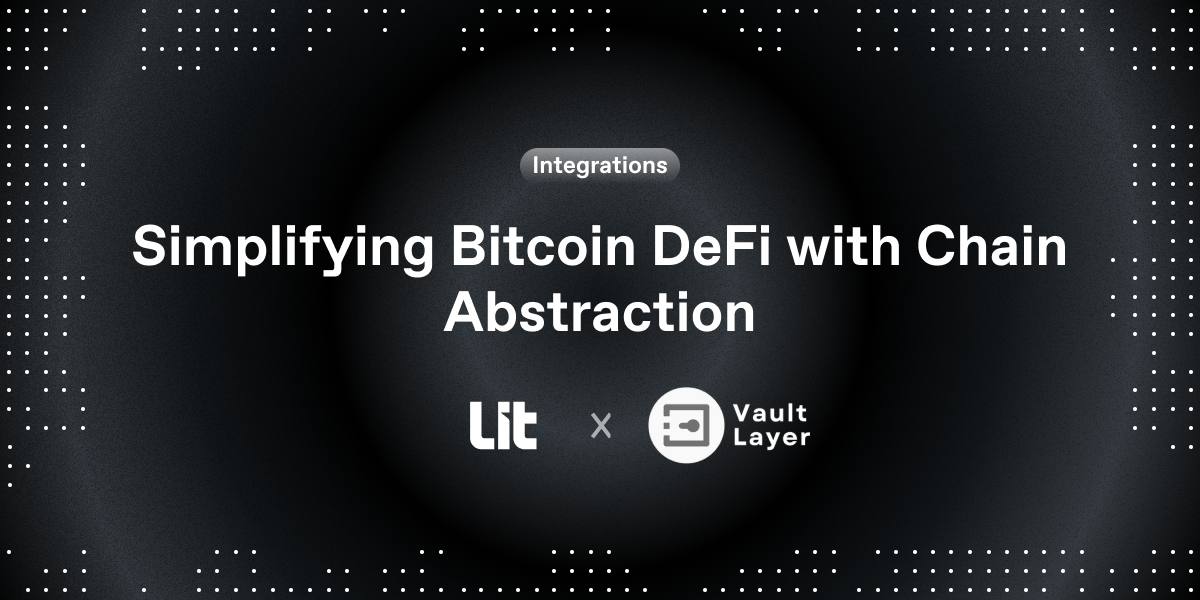
8 months ago
VaultLayer Launches SDK to Simplify Bitcoin DeFi Interactions
VaultLayer, in collaboration with Lit Protocol, is introducing a chain-abstraction SDK aimed at simplifying decentralized finance (DeFi) interactions on Bitcoin. Currently, Bitcoin DeFi accounts for only 1% of the $95 billion Total Value Locked (TVL), but with the rapid growth of Layer 2 solutions, this figure is expected to increase significantly. The existing user experience in Bitcoin DeFi is often fragmented and complex, requiring users to manage multiple wallets and navigate intricate bridging processes. VaultLayer seeks to address these challenges by providing a unified platform that enhances the user experience, making it easier for individuals to stake and earn with their Bitcoin assets.
The VaultLayer SDK leverages Lit Protocol's advanced key management network to streamline transactions across Bitcoin Layer 1 and Layer 2. By employing a chain-abstraction approach, VaultLayer simplifies interactions across various blockchains, effectively hiding complexities such as key management and transaction processing. Unlike traditional solutions that depend on Ethereum standards, VaultLayer utilizes Lit Protocol to create off-chain Bitcoin smart accounts, ensuring secure and seamless transactions. This innovation allows users to manage all their assets from a single account, regardless of whether they are on Bitcoin or EVM-compatible networks.
In addition to simplifying user interactions, VaultLayer's SDK introduces features that enable the minting of Lit Programmable Key Pairs (PKPs) using Bitcoin wallets and signing Bitcoin transactions with Lit Actions. This functionality not only enhances security but also streamlines the process of integrating Bitcoin into DeFi applications. As VaultLayer continues to evolve, it aims to make Bitcoin DeFi more accessible and user-friendly, paving the way for broader adoption and utilization of Bitcoin in the decentralized finance landscape.

8 months ago
Decentralized Physical Infrastructure Networks (DePINs)
Decentralized Physical Infrastructure Networks (DePINs)
DePINs have emerged as a critical part of the blockchain industry, disrupting traditional infrastructure models in data storage, computing power, and connectivity. The market cap for DePIN projects is estimated at $20 billion, attracting investments from top venture capital firms like Andreessen Horowitz and Binance Labs. Projects such as IoTeX and Akash Network are successfully onboarding contributors to their decentralized networks, with IoTeX having over 100,000 connected devices and Akash Network boasting more than 50,000 contributors for decentralized cloud computing.
The potential for DePIN to transform markets like the Internet of Things (IoT) is significant, especially with the IoT market projected to reach $500 billion. DePIN, short for 'decentralized physical infrastructure networks,' utilizes blockchain to maintain networks of physical hardware, offering solutions in various applications like sensors, wireless infrastructure, and energy grids. By incentivizing peer-to-peer hardware infrastructure through cryptocurrency tokenomics, DePIN projects are gaining traction in sectors like road mapping, telecommunications, and data storage.
Signup for latest DePIN news and updates